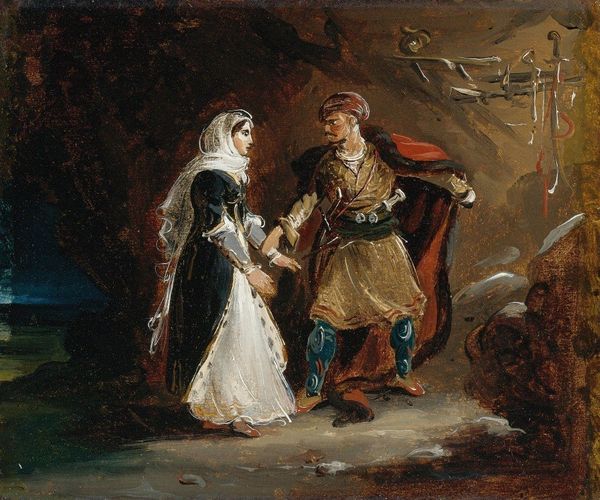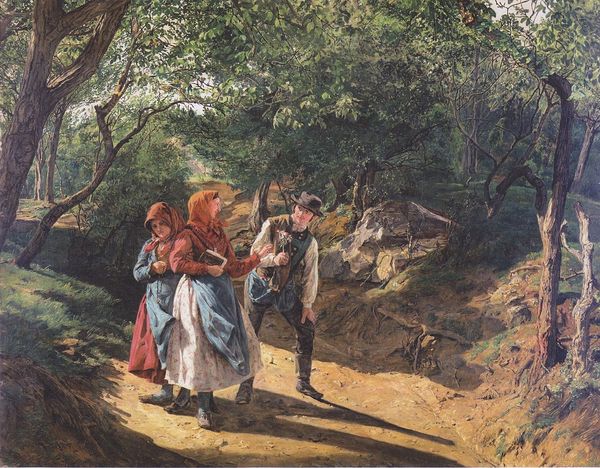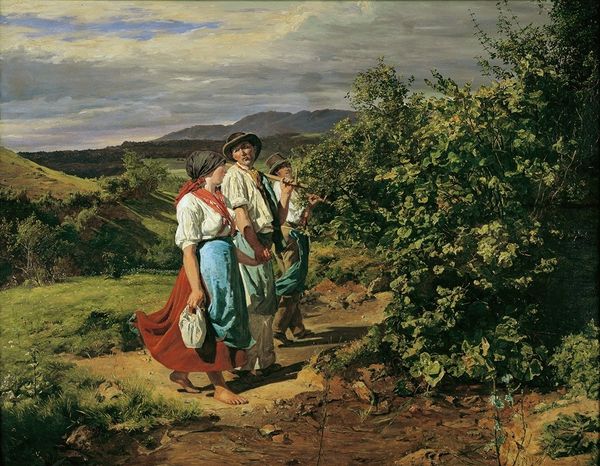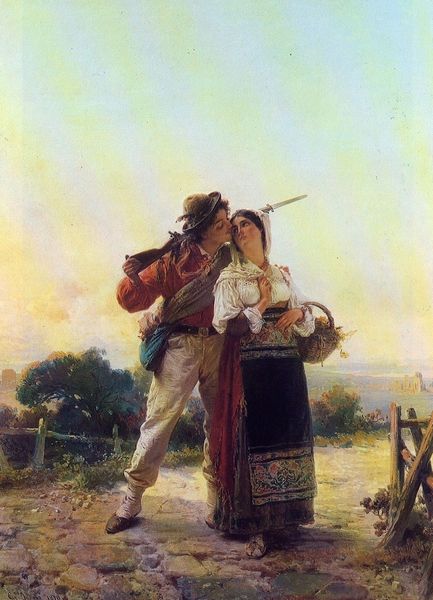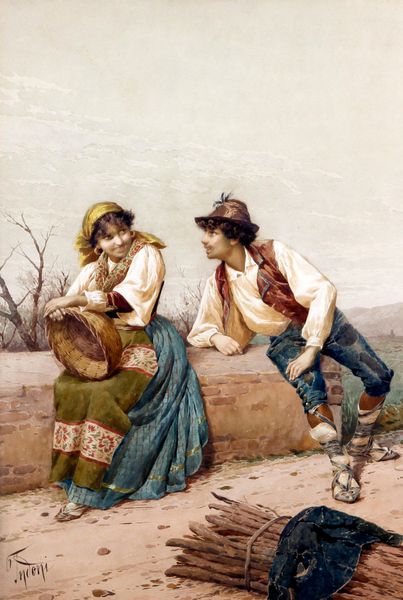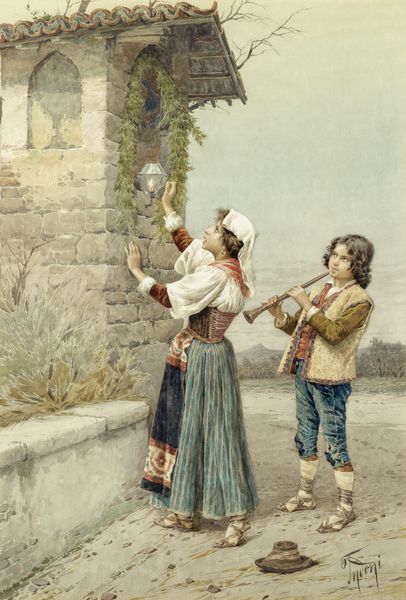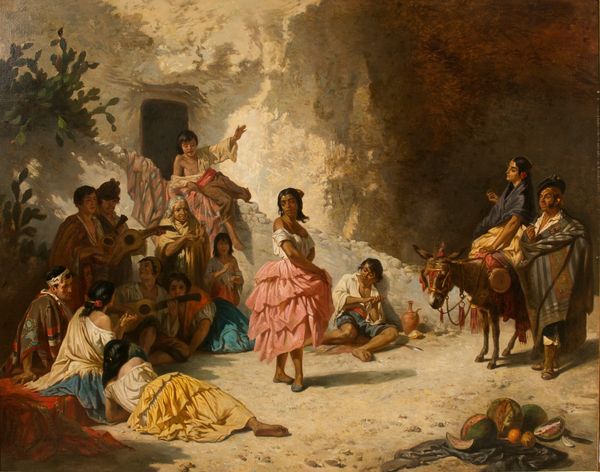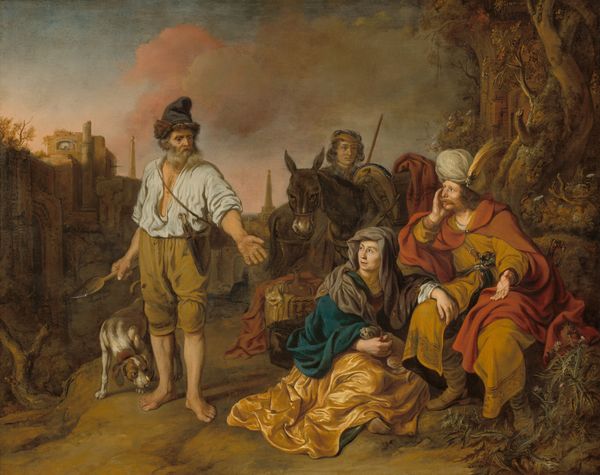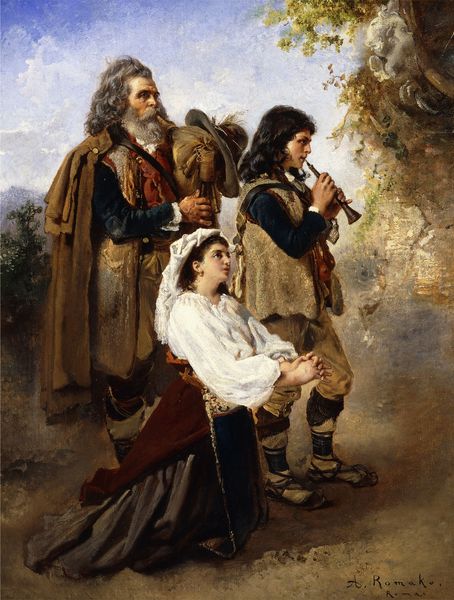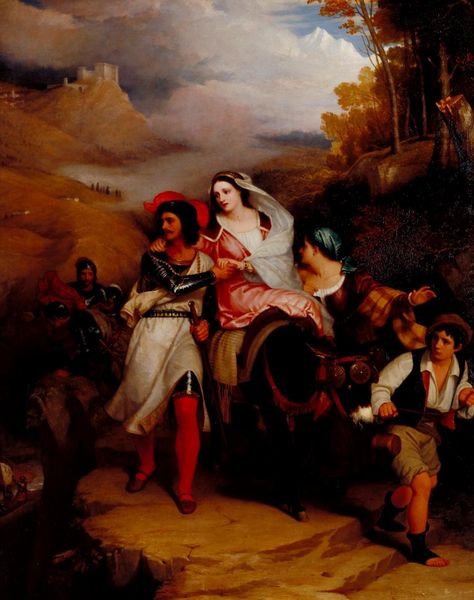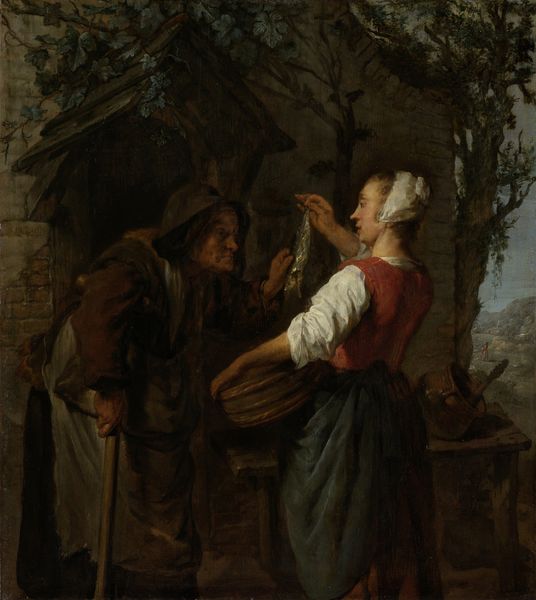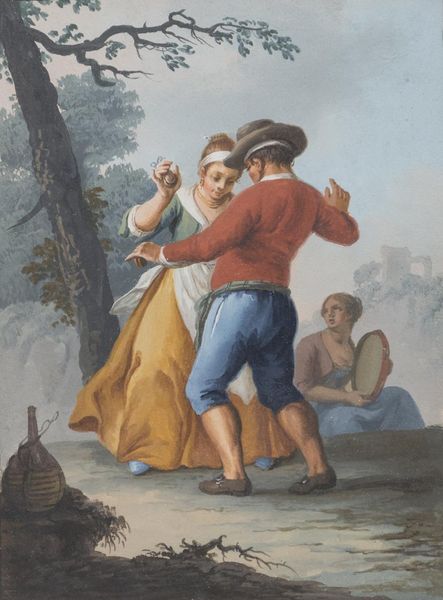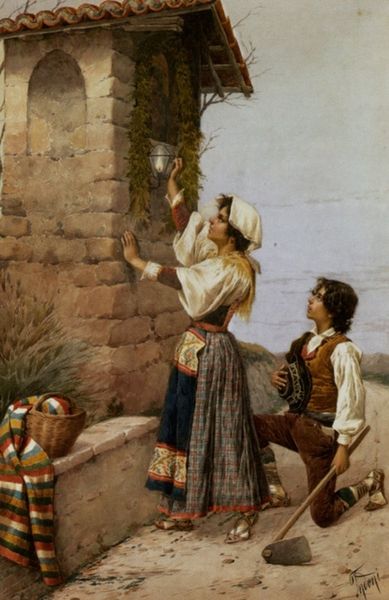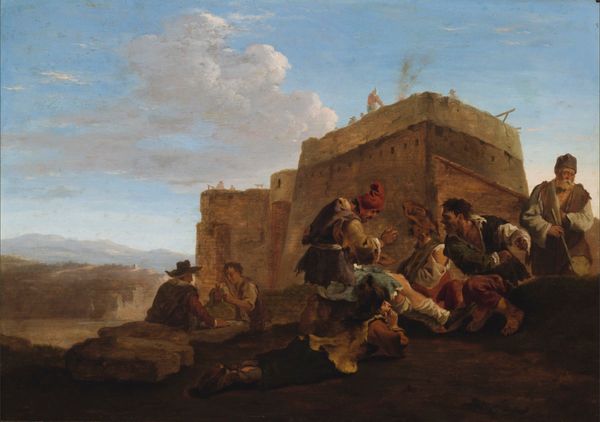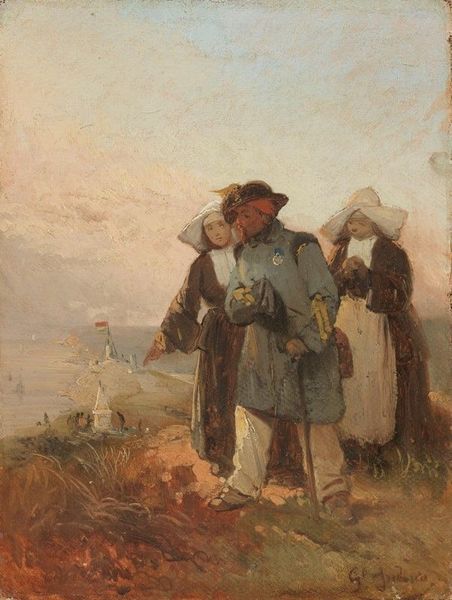
painting, plein-air, watercolor
#
gouache
#
painting
#
plein-air
#
landscape
#
charcoal drawing
#
oil painting
#
watercolor
#
costume
#
painting painterly
#
genre-painting
#
italian-renaissance
#
watercolor
#
realism
Dimensions: 41 x 55.8 cm
Copyright: Public domain
Editor: Here we have Anton Romako’s "Peasant Couple in the Campagna," created around 1865. The loose brushwork in watercolor gives the scene a transient quality. What speaks to you about this painting? Curator: The way Romako depicts the peasant couple really highlights the realities of rural labor. Notice how the materials the woman carries—hay or straw—are literally the fruits of their agricultural labor. The plein-air technique itself mirrors their engagement with the land; it’s not idealized but a raw representation. Editor: I see what you mean. It's less about romanticizing the countryside, and more about showing the… production cycle? The harvesting and all that. Curator: Precisely. Think about the materials he's using—watercolor, gouache—these were readily available and transportable, perfect for an artist wanting to capture scenes directly from life and possibly even sell them as tourist souvenirs later on. This brings up questions of accessibility and the commodification of rural life. What do you make of the contrasting depictions of the two figures' clothing? Editor: I didn't initially notice that. The man’s clothes seem more… theatrical almost? While the woman’s clothes, while elaborate, seem more worn and practical. Maybe to highlight the disparity in labor and appearance, a possible divide? Curator: It does, doesn't it? The male figure also has more ornate shoes than I expected to find. It really complicates how we perceive the class and social relations at play here. Editor: So it’s less a romantic idyll and more about unpacking the social and economic context. This makes me consider the implications of materials, processes, and presentation for these figures. Curator: It highlights the importance of interrogating what something is made of, and the means by which it comes to exist, to really understand the layers of meaning within a piece.
Comments
No comments
Be the first to comment and join the conversation on the ultimate creative platform.
